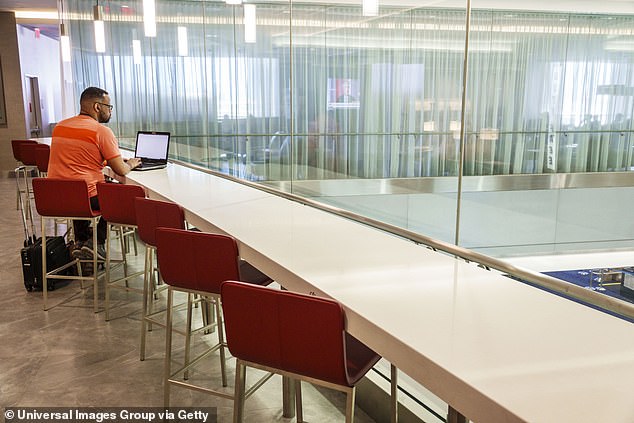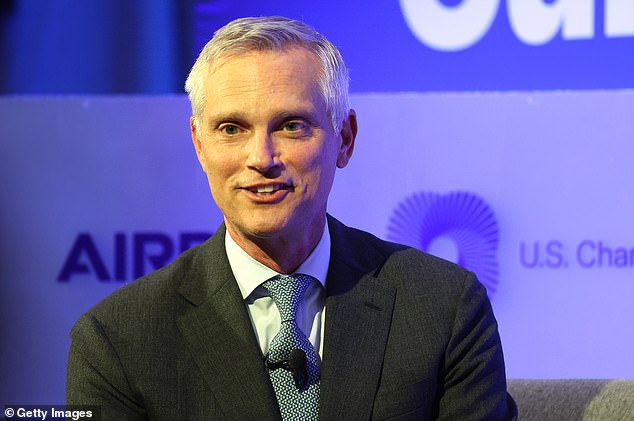American Airlines backtracks on major change to earning air miles
American Airlines has reversed a controversial decision that would have made it much more difficult to earn airline miles.
Earlier this year, the airline said it would begin limiting which tickets purchased through third parties – such as travel agents or online booking sites – were eligible to earn AAdvantage miles and loyalty points.
It would have been the first airline to take this step and encourage customers to buy tickets directly on its own website, saving commission fees for other sites.
Such a move would prevent flyers from earning points when booking with many third-party travel sites, which can be cheaper.
Experts feared this would open the door for Delta and United to follow suit. Airlines often copy cost-saving measures.
But – good news for travelers – American Airlines has dropped the idea, which was supposed to go into effect on July 11. It also means rivals are now likely to abandon any plans they might have had after seeing the reaction.
American Airlines has reversed a controversial decision that would have made it more difficult for customers to earn miles and loyalty points
American Airlines didn’t want to create “confusion and disruption” among customers, CEO Robert Isom said, but the airline had also faced pressure from travel agents.
“Next month, we started differentiating who earned AAdvantage Miles and who didn’t, based on where they booked. That is not the case,” Isom told investors at a conference earlier this month.
‘We don’t do that because it would cause confusion and disruption for our end customer, and we are going to ensure that we handle that carefully. We listen to feedback.’
The plan was for customers to only receive reward points if they booked directly through the airline, or through selected partners and ‘preferred agencies’.
This would have cut down on the commission the airline would have to pay to external agencies.
Travel agents that did not receive the airline’s stamp of approval faced the prospect of losing dozens of customers who would normally purchase American Airlines flights through them.
Zane Kerby, president and CEO of the American Society of Travel Advisors, had fought back against the proposed policy and applauded the reversal, travel industry website Skift reported.
“I am grateful for American Airlines’ renewed recognition of the essential role travel advisors play in facilitating air travel for our shared customers,” Kerby said.
“I would like to express my gratitude to American Airlines CEO Robert Isom for recognizing that his previous approach was flawed.
“The reversal of the decision to withhold AAdvantage points and miles from travel agent bookings is a testament to the strong position that travel agents hold in the airline distribution channel.”
The planned change was initially scheduled to take place on May 1, but the airline has pushed back the deadline by two months.
“American Airlines wants to cut out the middleman,” The Points Guy editor-in-chief Clint Henderson told DailyMail.com when the airline announced the planned change in February.
‘The airline has been withdrawing from third-party booking sites for some time, but is now taking more extreme measures.
“American is working on the theory that they no longer need third-party vendors such as travel agents. They don’t want to have to give discounts or commissions to another company and think they might be able to take over that company themselves.’
The change could also have affected those eager to redeem transferable credit card points by booking with American Express, Chase or Capital One, had they not been on the airline’s list of “preferred agencies.”
Henderson added that the move would mean American could make more money because it could sell customers other products, such as early boarding, better bus seats or even first-class seats if they need to book directly.

The airline has backtracked on a plan to limit the number of airline miles and loyalty points customers can earn when booking through third-party agencies

American Airlines did not want to create “confusion and disruption” for customers, CEO Robert Isom said, but the airline had also faced pressure from travel agents
However, he pointed out possible shortcomings in the strategy at the time.
“However, there is also a big downside risk here for Americans,” he said.
“It could be kicking itself if some companies refuse to comply with the new rules and start doing business elsewhere.”
It comes after Delta Air Lines was also forced to make an about-face last year following a controversial decision to restrict its rewards program and access to airport lounges.
The airline caused a major backlash in September when it announced plans to limit the number of entries into its lounges and tighten the qualification criteria for customers to earn frequent flyer status.
CEO Ed Bastian admitted that the airline has “gone too far” with the proposed changes.
